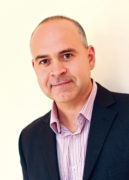All of us are familiar with the phrase ‘getting something off our chest’, but when was the last time you considered how having got something off your chest made you feel?
This coming Thursday is Time To Talk Day, and it’s a great opportunity to have a look at the mental health benefits of something as simple as a conversation.
Granted, we all have moments where we feel like we simply need to offload or vent, whether it’s about a relationship or a difficult situation at work, and many will turn to friends or family members.
When we vent about something that’s troubling us we generally feel an instant relief at having shared the issue with someone else. In fact, we often end up laughing about the initial problem and what made us take it so seriously.
What’s harder for most of us to talk about is how an event made us feel. Whilst the actual event is easily recounted, many of us will choose to keep the feelings of helplessness or anxiety it triggered, just to quote two examples, to ourselves.
Even in 2020, we still fear the potential stigma attached to admitting potential mental health issues for fear of being viewed as weak or not in control. Unfortunately, trying to keep things from others, does little to help us deal with the initial problem.
One in four people is likely to experience a mental health problem in the UK each year. Mental health problems are more common than many of us think. What’s not so common is feeling able to comfortably talk about the issue.
However, culturally this is changing for us as high profile people like the young royals embrace the issue and talk openly themselves about their own feelings, encouraging others to do the same.
Talking does not always mean talking to a professional. Being able to turn to a family member or a friend is an important first step for many. What’s even more important is that the person who is being approached is ready to listen.
Talking about mental health or related problems can happen anywhere – over a coffee, during a walk or even on the commute home. In fact, many people find it easier to broach a potentially difficult subject in a common situation.
If you’re the one listening, you’re not expected to have a solution ready. You may have ideas, but first and foremost, it’s about being there to listen. Avoid labelling things as ‘crazy’ as that’s just not a very helpful term.
The next step is just as crucial: simply because someone has opened up about an issue there is no need to treat them differently. They are still the same person they were before the conversation. Every conversation about mental health problems helps break down the stigma surrounding the topic.
When talking among friends and family isn’t enough, there are therapies centered around talking. If you are asking your GP for those you may be referred for counselling or Cognitive Behavioural Therapy (CBT).
The aim is to help you understand better how your emotions might affect your thoughts and ultimately your behaviour.
In any case, it is about understanding what is happening to our minds and learning to deal with that.
And sometimes, that can be done by ‘putting the world to rights’ over a coffee, whereas at other times, professional help is required.
Professor Ewan Gillon is a Chartered Psychologist and Clinical Director of First Psychology Scotland with centres in Aberdeen, Inverness, Perth, Dundee, Edinburgh, Glasgow and Borders.

